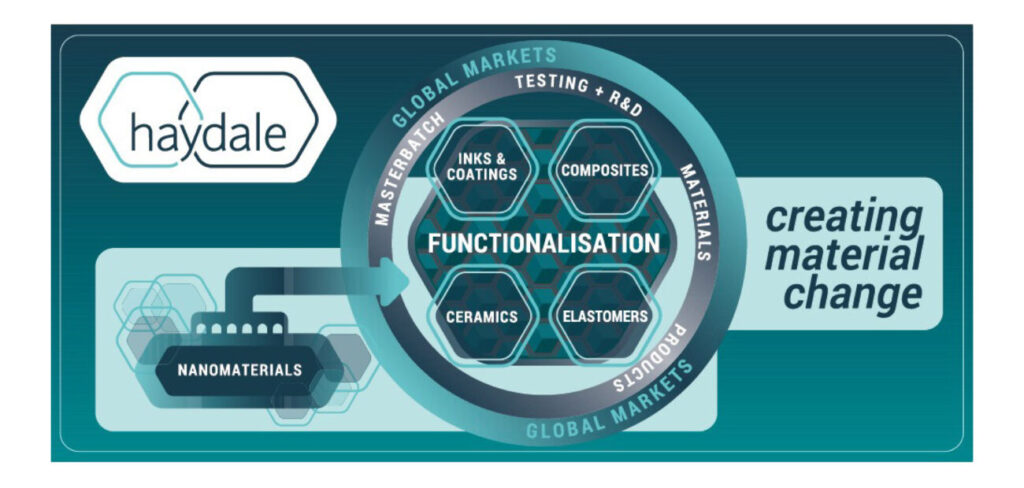Haydale, a global advanced materials group, has been awarded funding of £186,403 (US$242,000) by Innovate UK, the UK’s innovation agency, to develop smart composite tooling for aerospace and other industries using functionalized nanomaterials.
The ESENSE project (Out-of-autoclave self-heated tooling enabling temperature homogeneity and embedded graphene sensors) aims to enhance out-of-autoclave (OOA) manufacturing processes with monitoring and through-life sensing capabilities using Haydale’s patented HDPlas functionalization process to develop high temperature inks and pressure sensors. The project is due to start in April 2022 and is expected to run for 24 months.
Haydale Composite Solutions and Haydale are partners in the project alongside Atlas Composites Technologies, Brunel University London, Advise-Deta, TWI and Energy Carbon. The parties will address the demand for lightweight composite materials and the need for eco-friendly and cost-effective manufacturing processes.
The ESENSE project aims to replace costly autoclave molded processes with a multi-zone OOA self-heated tooling solution, potentially offering up to 20% shorter lead times and a 15% energy saving compared to traditional aerospace composite part manufacturing processes.
Keith Broadbent, CEO at Haydale, said, “With the Smart Grants award from Innovate UK, Haydale can supplement and further develop core technology and thereby help to bring to market a cost-effective and environmentally friendly manufacturing solution for composite parts. Using functionalized nanomaterials, we are looking to address the current issues experienced using self-heated tooling solutions and we look forward to working with the project’s partners on a solution that will significantly enhance the quality of composite materials and exploit their full potential not just in aerospace but in other commercially viable solutions.”
Haydale’s functionalized graphene inks offer a non-intrusive solution and unlike current self-heating tooling can withstand temperature inhomogeneity and complex processing conditions thanks to the enhanced characteristics plasma functionalization imparts. The pressure sensors can potentially integrate with online processes and in-service monitoring to provide robust, defect-free manufacturing at a cost of up to 45-55% less than autoclave manufacturing.
While OOA is mostly used in aerospace, Haydale suggests that the outputs from the project could potentially have far reaching benefits for other sectors such as automotive, renewable energy and consumer electronics where improved efficiencies and product quality are being sought.



